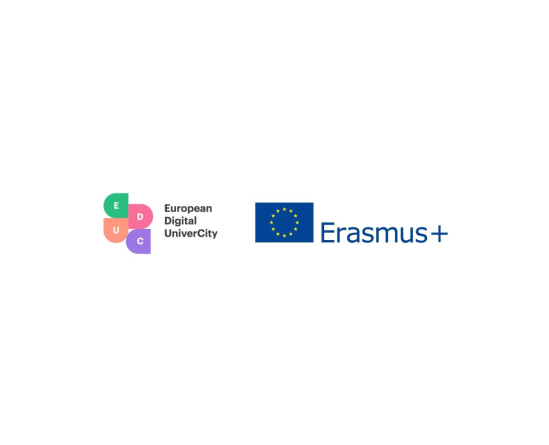EDUC II. - European Digital UniverCity - Building a bridging alliance
Project ID
101089535 - EDUC II.
Project title
European Digital UniverCity - Building a bridging alliance
Project manager, contact details
Márton Béres, beres.marton@pte.hu
Academic supervisor, contact details
Prof. Dr. István Tarrósy, tarrosy.istvan@pte.hu
Total project budget
15.999.830 EUR
Total budget of UP
1.531.561 EUR
Project start date
Project end date
Coordinator
University of Potsdam DE)

Partner Organisations
University of Rennes (FR), University of Masaryk (CZ), University of Paris Nanterre (FR), University of Cagliari (IT), University of South-Eastern Norway (NO), University of Jaume (ES)
General description
The European Digital UniverCity (EDUC) brings together 8 research intensive public universities: Potsdam, Paris Nanterre, Jaume I, Pécs, South-Eastern Norway, Cagliari, Masaryk University and Rennes 1. EDUC aspires to use digitalization as a vantage point to foster learning, research, innovation and societal responsibility and thus to strengthen present and future citizens in their capacities to tackle 21st century challenges. The alliance builds on the expertise of its members to extend challenge-based, transdisciplinary and innovative pedagogies, to internationalise curricula and to pilot new formats (micro-credentials, European degree) supporting a flexible student journey. The alliance supports seamless mobility of students, scholars and staff through multilingualism as well as blended, physical and virtual learning/training formats organized on the joint virtual EDUC inter-campus. It entertains a rich network of innovation and knowledge transfer for entrepreneurship, traineeships and cross-sectoral research with local and international ecosystems. The consolidation of the EDUC governance model of co-creation and the legal statute will reinforce the alliance’s inclusive and open approach promoting the European way of life and European values on a global scale. The main beneficiaries of the activities are the almost 200.000 students, 13.500 scholars and 17.500 staff. EDUC expects to raise the employability of its students, increase regional knowledge-transfer, establish a vibrant research community, create new HR tools, develop the competencies of its staff and act as a role model. It will produce 47 deliverables covering shared governance, management and dissemination, joint infrastructures, joint learning opportunities, research induced education, staff development and outreach activities.
Program
ERASMUS +
Application monitoring
